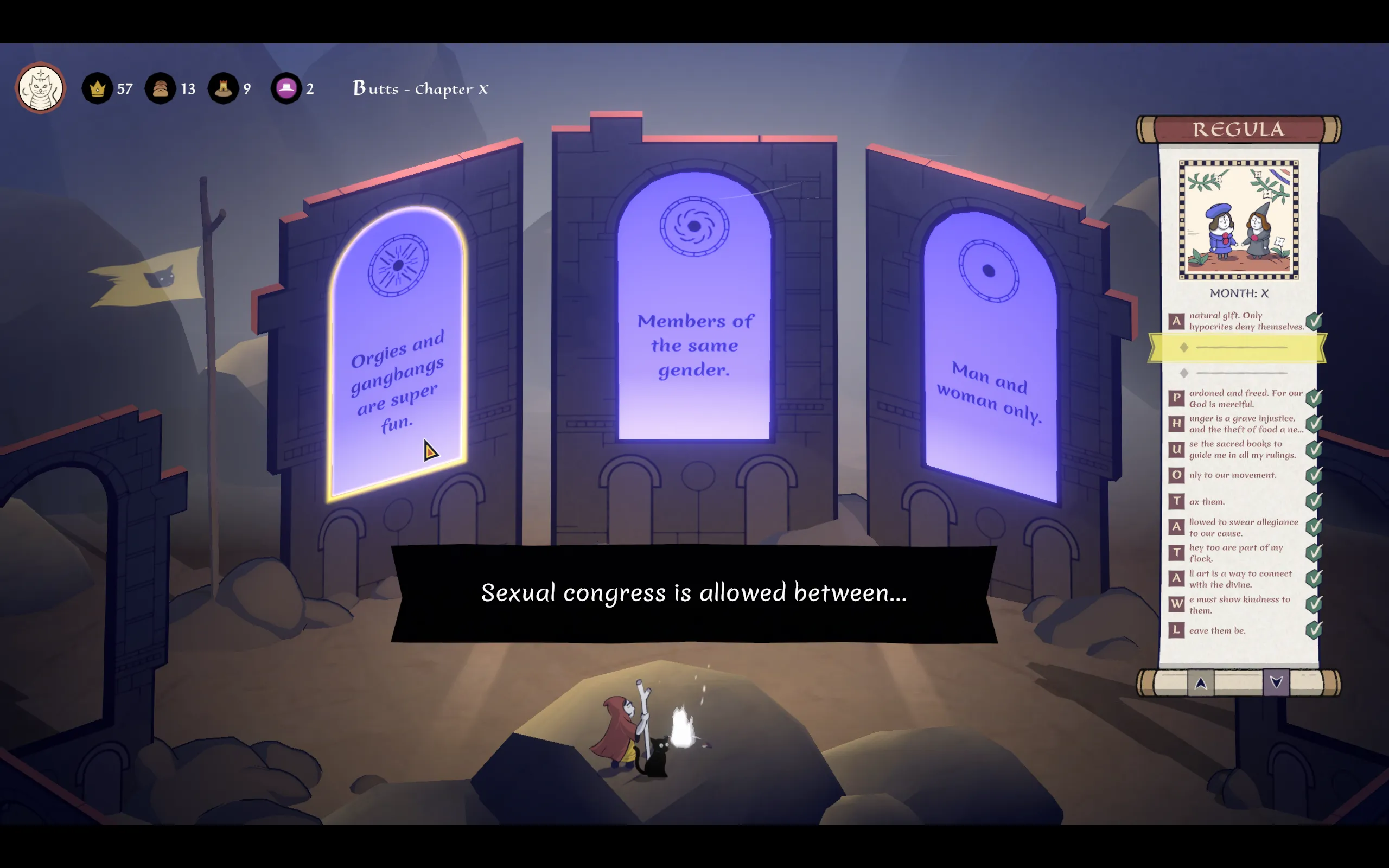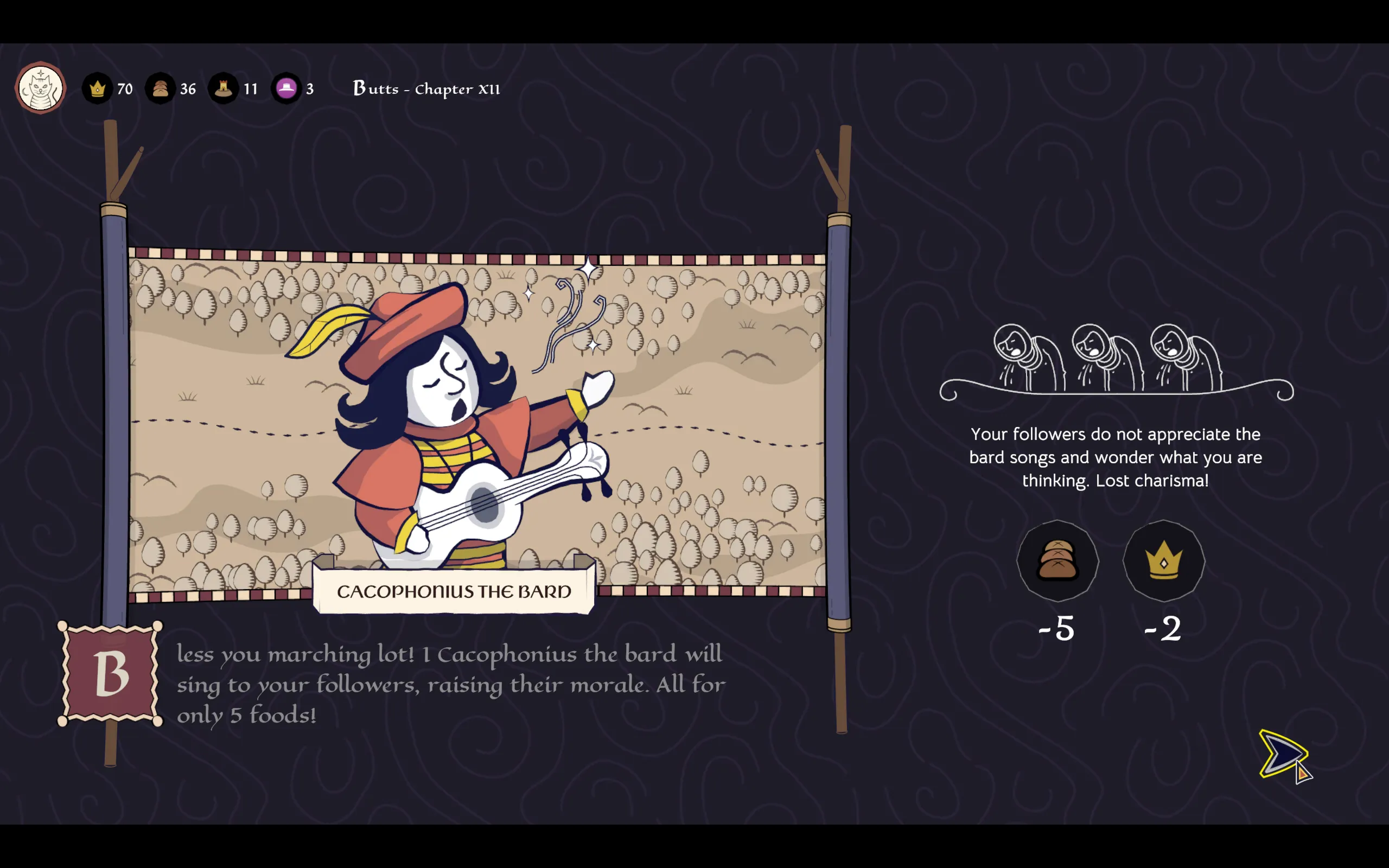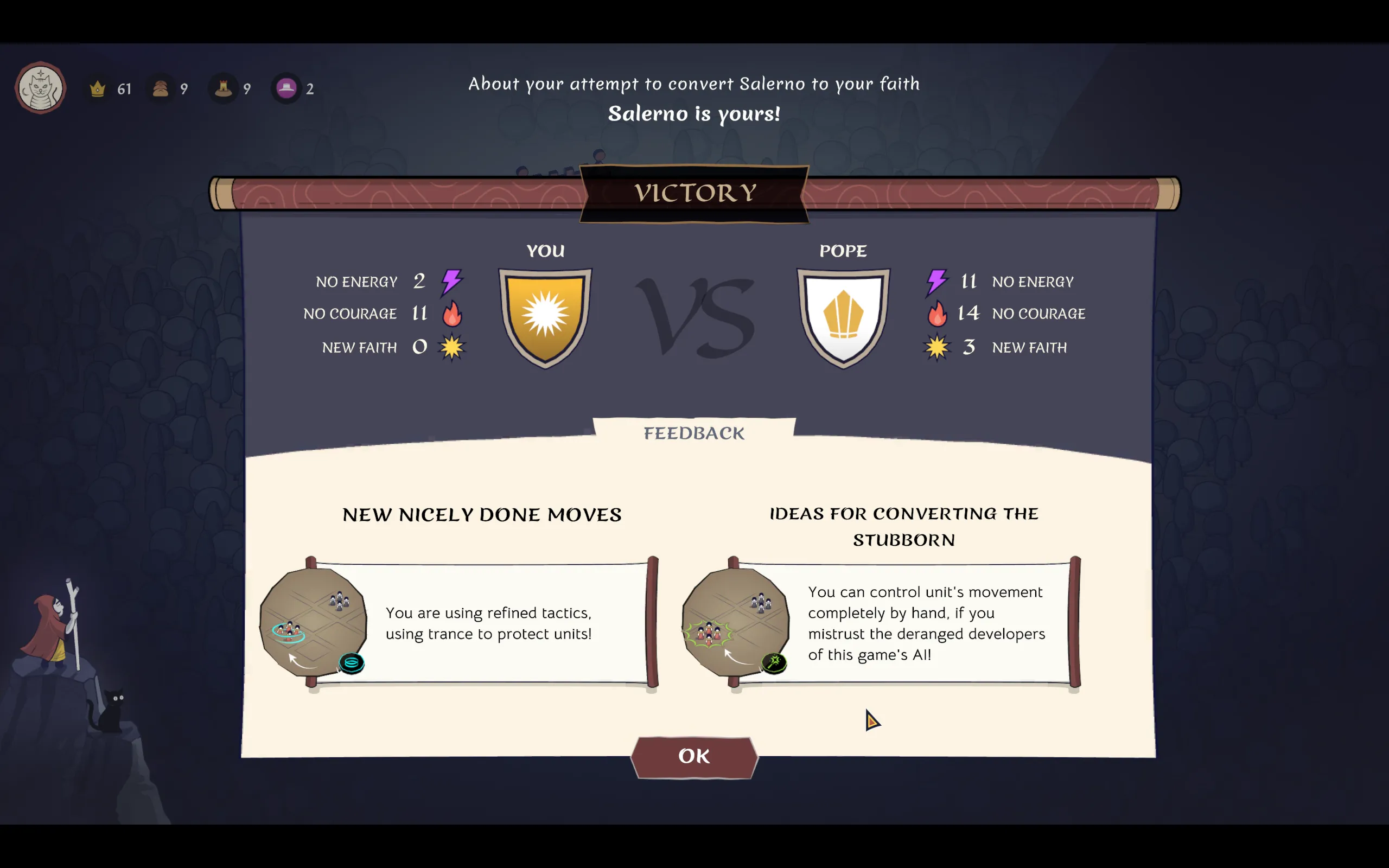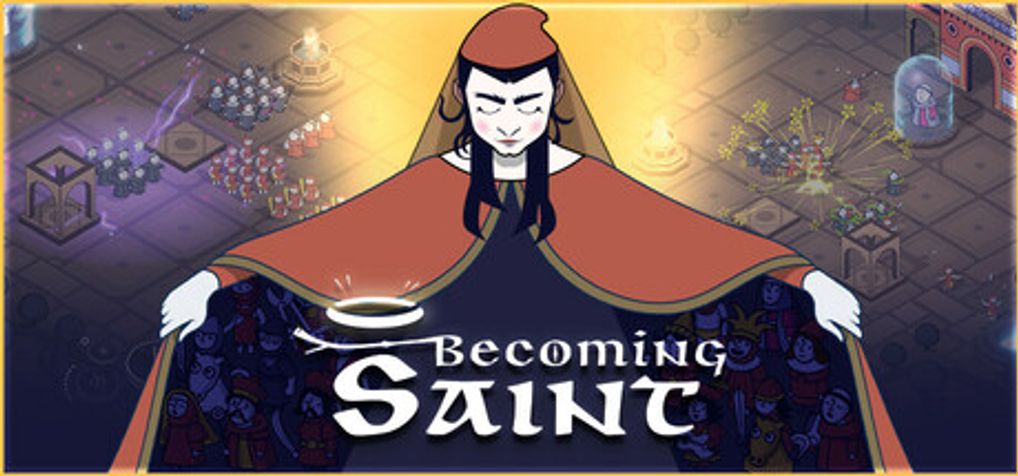Becoming Saint Review
Becoming Saint is a strategy and tactics game based around the premise of starting a new cult in medieval Italy. You play as a would be cult leader. Struck by divine inspiration, the cult leader sets out across Italy, cultivating a flock of followers, converting cities, and becoming a force to be reckoned with as you reshape Catholicism in your own image.
There is a lot here that would make for an excellent strategy game, and indeed, it’s a style of game that works well in other contexts. One of the elements that makes Crusader Kings III fun as a roleplay game, for instance, is its robust religion system and the ability for a player to craft and spread an absolutely bonkers religion.*
*Note: As a holder of a BA in Religious Studies, I am aware no religion is bonkers. Every religion is unique and special and meaningful to its followers. Don’t @ me.
 I just think medieval Italy could be a bit spicier, y'know?
I just think medieval Italy could be a bit spicier, y'know?
While Becoming Saint is not, nor does it aspire to be, a 4X like Crusader Kings, its gameplay consists of a combination of strategic play, tactical play, and management. Players choose the precepts of their faith, which then informs which followers they can recruit. These followers then march on a nearby city, engaging in tactical combat, and ultimately either converting the city and harvesting its resources, or returning home to starve.
It’s this combination of genres that makes Becoming Saint feel almost like a 4X-lite, hinting at a greater management sim, while also reassuring players that this is a lighter game than a traditional 4X. While one consequence of this is a game that is easier to pick up and which requires less investment, a worse consequence is that Becoming Saint feels like it should have more to do than it actually does, and should allow more control than it actually does.

One example of this frustrating lack of management ability is in the game’s economic mechanics. While the cult leader can accumulate large numbers of followers, these followers come with a maintenance cost in the form of bread. Each follower needs to be fed at the end of each day, and any followers that are used to conquer a nearby town require extra bread. While conquered towns provide some bread as a daily income, this bread isn’t enough to cover the needs of the growing flock. Conquest - and therefore, the extra portion of bread for a conquering army - is also a required activity, meaning there is never enough bread for the cult.
In a traditional 4X or management sim, this would be solved by investing in towns to increase their bread production, tasking followers with bread creation, or being able in some way to shape the game’s economy to better accommodate the needs of the player. However, while the economy can be nominally shaped by the decisions the player makes when crafting their faith, in practice, the passive income is never enough to fund the ongoing revolution. This creates a system where decisions about where to conquer is based not on what’s most strategically advantageous or what will win the game, but on what the least expensive option is so as not to run out of bread and lose half of the accumulated resources and followers.
Needing to balance growth and income is reasonable and provides an interesting challenge. Needing to balance both while requiring scaling without mitigating the effects of scaling is frustrating.
 I appreciate the bard enough for all of us.
I appreciate the bard enough for all of us.
More problematic, however, is the tactics mechanics in what is ostensibly a tactical game. Once followers arrive in a city to convert its residents, players play through a tactical battle. Which followers arrive in a city is dependent on its defenders, with different defenders having different weaknesses, and different followers having different strengths.
All of this should lead to interesting tactical gameplay. Decisions about positioning and which troops to send, balancing strengths and weaknesses, and minimising the number of troops sent in the first place to minimise bread consumption are all excellent decisions to have to make in a tactical game. However, all of it is undermined by the sheer clunkiness of the actual tactical battles. Trying to command units to attack any given unit is an exercise in frustration, with units sometimes moving, sometimes not, sometimes getting themselves stuck, and having some of the worst AI I’ve seen in a tactical game.
One option the game offers is to remove the tactical element entirely by using an autobattler. That the game offers this option is telling in and of itself, as it feels like a cheeky admission that the manual mode is awful and unplayable. While the autobattler does make the battles less frustrating, it doesn’t necessarily improve them. The awful AI is still there in the autobattler, with units still wandering towards the enemies they’re weak against, getting stuck, and dying. The battles are a miserable experience, and with no way to skip or improve them, just make the game an awful slog.
 I do not, in fact, trust the developers of this game's AI.
I do not, in fact, trust the developers of this game's AI.
The lack of management ability and the awful tactics might be tolerable if the rest of the game was compelling or interesting, but it isn’t. While the game has a mechanic for choosing tenets of the cult, these are basic and don’t fundamentally alter the gameplay loop. Religious tenets are primarily used to filter which followers are available to be recruited, but with the caveat that it’s not clear which tenets unlock which followers. Choosing tenets that are out of line with previously chosen tenets also drives away previously-recruited tenets, creating a disincentive to change. The religion crafting mechanic, then, is less of a mechanic, and more of a rote personality test, affecting nothing and being the rare spark of humour in an otherwise bland and tedious game.
Blending genres to create a religious simulator has been done well before. Though I may dislike it, Cult of the Lamb’s success is a testament to how much people want a game that does exactly what Becoming Saint is trying to be. However, Becoming Saint’s blending of genres creates a game that’s frustrating in its simplicity, baffling in its lack of management ability, and ultimately, just boring.
Developer: Open Lab Games
Genre: Strategy
Year: 2025
Country: Italy
Language: English
Play Time: 4-5 hours
Playthrough: https://youtu.be/2JE9htMMZag
